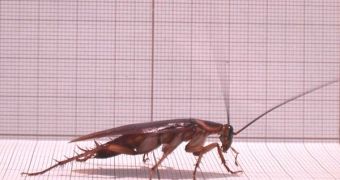Cockroaches are really persistent, and so hardy that researchers found they were the only organisms that can survive in an area after atomic experiments.
Now, Japanese researchers were amazed with a new finding on these disgusting insects: they have a memory enabling them to form Pavlovian reflexes. They taught cockroaches to salivate in response to neutral stimuli like the Russian scientist Pavlov did a century ago with dogs.
Forming conditioned reflexes requires memory and learning capacity, abilities linked to intelligence, and this kind of salivating response was only previously proven in humans, apes, dogs and other mammals.
Now, cockroaches are proven to possess the same abilities through this research that aims to decode more about the human brain by investigating what's going on in the simpler and easier-to-study cockroach brain. "Understanding the brain mechanism of learning in insects can help us to understand the functionings in the human brain. There are many, many common characteristics," said Makoto Mizunami, of Tohoku University's Graduate School of Life Sciences.
In their tests, the Japanese researchers exposed the cockroaches to an odor whenever they fed them with a sugary solution. When they exposed the cockroaches to the odor alone, after several repetitions, the insects still drooled. Cockroaches fed on sugary solutions without the odor did not display the salivary conditioned reflex when exposed to the smell. "Sure, cockroaches can remember and learn," Mizunami said.
In his 1890s experiments, Pavlov discovered the "classical conditioning" with dogs who associated food with bell calls. After a few repetitions, they formed the salivary reflex in response to the bell.
But with all the current scientific advances, there is still little knowledge on the neural mechanisms that induce such complex reflexes and behaviors. "In the cockroach's brain, there are many, many neurons and we have to find which neuron is actually responsible for this learning. We believe that it is very important to study a simple system to very precisely determine what is happening during learning. We hope it is at least in part applicable to humans," Mizunami said.

 14 DAY TRIAL //
14 DAY TRIAL //